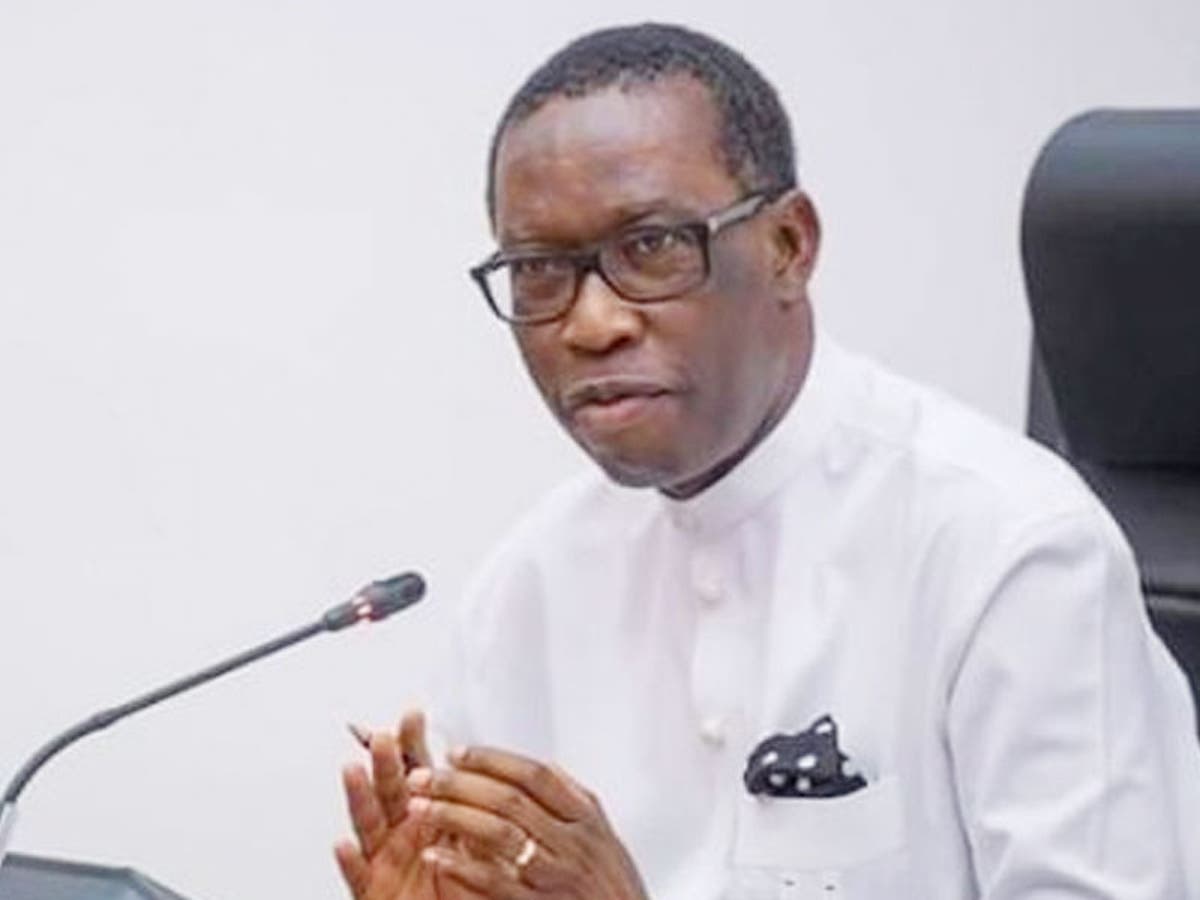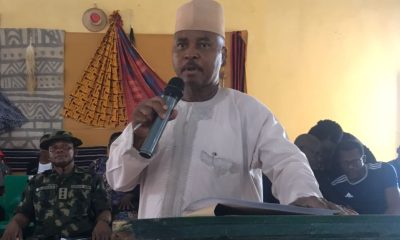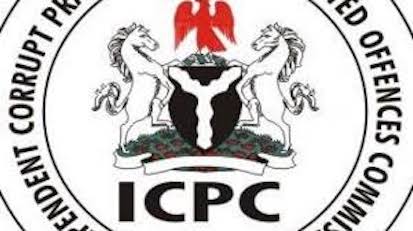Oil & Gas
Gov. Okowa Tasks FG on Rising Cost of Cooking Gas

Gov. Ifeanyi Okowa of Delta has called on the Federal Government and relevant policy makers to initiate steps towards reducing the rising cost of Liquefied Petroleum Gas (LPG) in the country.The governor made the call at a two-day LPG sensitisation and awareness campaign organised by the National LPG Expansion Implementation Plan, Office of the Vice President in conjunction with the State Government on Monday in Asaba.
He said that the theme of the campaign “Stimulating Delta State Socioeconomic Growth Through LPG Adoption And Expansion” was apt as the world moved towards greener sources of energy. This, according to him, is because of the adverse effects of fossil fuel on the environment.Okowa, represented by his Chief Economic Adviser, Dr Kingsley Emu, said stakeholders must work to reduce the rising cost of LPG if the objective of the National LPG Expansion plan was to be realised.He thanked the Office of the Vice President for choosing Delta as one of the pilot states for the public enlightenment campaign.“Just recently, world leaders gathered in Glasgow, Ireland, in a Summit (COP-26) to discuss the adverse effects of climate change occasioned by the use of fossil fuels and the need to move towards cleaner energy.“This makes the adoption of LPG as a transition fuel to greener sources exigent, and Delta State is keen to play a vital role in this process and will give this awareness programme maximum support,” he said.Okowa said that Delta was home to 40 per cent of the nation’s natural gas endowments, hence a large number of oil and gas companies operate in the state.He said that there were prospects for the establishment of gas processing plants and gas-related industries in the state.This, the governor said, had implications for employment generation, inclusive economic growth and sustainable development.“However, as we adopt LPG as the fuel to drive the socio-economic activities of the economy, we must acknowledge a big challenge currently confronting the populace, the issue of high price of LPG in the market.“At the rate the price is skyrocketing, LPG is gradually getting out of the reach of the middle class and common man.“The price increase has been linked to several factors including the VAT re-introduction, devaluation of the naira and large importation of LPG vis-a-vis low production locally.“It is imperative that policy makers find a way to mitigate this upward trend in the price of LPG to give succour to our people, and if the goal of the LPG expansion plan is to be realised,” he said.Okowa was unhappy with the continuous flaring of gas by most oil and gas companies and urged them to expand their production facility to include the capacity to convert gas to LPG for use.He said that this was because of the untapped potential in the LPG market.The governor called on investors to come into the oil and gas sector and improve the availability of LPG in the market.He that his administration had carried out significant reforms to create investor-friendly climate in the state, including tax harmonisation, easy access to land and dispute resolution mechanisms to handle conflicts when they arise.“As we embrace the use of LPG in every sector of our economy as the source of energy, safety concerns become paramount.“We cannot forget in a hurry the gas explosion incident at Agbor in January this year, which, sadly, claimed many lives.“As a government, we have put mechanisms in place to avert similar occurrences and that includes the setting up of a committee to advise the government on guidelines for the establishment of gas plants in the state,” the governor said.The Senior Special Assistant to the President on LPG, Mr Dayo Adesina, said Delta State was strategic to the National LPG Expansion plan in view of its contributions to oil and gas development in the country.He said the Federal Government would procure 10 million gas cylinders and give to marketers for onward distribution to end users which would be exchanged from various homes.Adesina said there was no reason why anyone should use firewood, kerosene and charcoal for cooking especially when the country was blessed with abundance of gas.He commended Gov. Ifeanyi Okowa for setting up four training centres for manufacturing of low emission stove in the state.Earlier in a welcome address, the State Commissioner for Oil and Gas, Prince Emmanuel Amgbaduba, said the objective of the sensitisation was to display the economic and sustainability plan for adopting LPG for domestic use, power generation, agriculture and transportation amongst others.He said that the adoption of LPG for clean cooking would mitigate against deforestation, reduce depletion of the ozone layer and boost revenue generation in the state.The commissioner commended Okowa for approving an Annual Sensitisation Campaign on Safety for LPG Retailers in the State, with the maiden edition held in 2020.“By this new vista, oil companies are encouraged to diversify by transforming waste to wealth in place of flaring gas.“As the State gets set to embrace the new frontiers that this programme intends to unveil, government is not unmindful of the associated safety hazards especially when not handled appropriately.“With the establishment of Department of Monitoring and Compliance in the ministry, all hands must be on deck to institute best global practices at keeping every resident of the State safe as we reiterate our resolve to adopt LPG as a transition fuel in the journey towards greener energy,” Amgbaduba said.On his part, Chairman, Isoko South Local Government Council, Mr Victor Asasa, called for the establishment of gas turbine power plant in Irri to be powered from the gas being flared in the area.The event featured paper presentations from stakeholders in the oil and gas sector as well as exhibition of locally produced low emission stoves. (NAN).Oil & Gas
NNPC Ltd. Disclaims Fake Financial Scheme

The Nigerian National Petroleum Company Limited (NNPC Ltd.) has disowned a fake AI-generated video circulating on social media featuring a cloned voice of the Group CEO, Mr Bayo Ojulari, promoting a fictitious poverty alleviation scheme.
The Chief Corporate Communications Officer, NNPC Ltd.
, Olufemi Soneye in a statement on Thursday clarified that the company had no such investment initiative.Soneye urged the public to disregard the video, originally shared by an account named Mensageiro de Cristo on Facebook.
“NNPC Ltd. has warned the perpetrators to cease their fraudulent actions or face legal consequences,” he said. (NAN)
NEWS
NGEP Urges Gas Reticulation In Buildings

By Olasunkanmi Onifade
Abuja, April 29, 2025 The National Gas Expansion Programme (NGEP) has called on stakeholders to promote the integration of gas reticulation systems in estates, districts, and industrial areas, following best practices seen in developed countries.
Chairman of NGEP, Prof.
Mohammed Ibrahim, made the call on Tuesday during the Builders’ Conference and Annual General Meeting of the Nigerian Institute of Building (NIOB), FCT Chapter, in Abuja.The conference, themed “Gas Reticulation in Building: Design, Safety, Environmental Compliance and Prospects for Builders,” focused on enhancing energy infrastructure in Nigeria’s built environment.
Ibrahim noted that with Nigeria’s vast natural gas reserves, gas reticulation offered a sustainable solution to improve energy accessibility, affordability, and reliability in homes and businesses.
“Gas reticulation in buildings presents a compelling pathway to a more sustainable, efficient, and resilient built environment.
“By prioritising sound design principles and ensuring strict adherence to safety and environmental standards, we can unlock the full potential of natural gas to drive progress,” he said.
He highlighted the key benefits of gas reticulation, including energy efficiency, cost effectiveness, versatility, and reliability.
Also speaking, the Chairman of the Council of Registered Builders of Nigeria, Samson Opaluwah, stressed the importance of capacity building for safe and efficient gas distribution.
He said this involved training engineers, technicians, and other professionals in system design, installation, and maintenance, while also strengthening regulatory frameworks and encouraging local innovation and manufacturing.
The Chairman of NIOB, FCT Chapter, Usman Okehi, emphasised the growing need to incorporate gas systems in residential, commercial, and industrial developments across Nigeria due to rising energy demands and gas availability.
According to him, with this advancement comes the need for strict adherence to design standards, rigorous safety protocols, and full environmental compliance.
“It is our responsibility as professionals and regulators to ensure these systems are functional, safe, and environmentally sound,” Okehi said.
He described the conference as a platform where stakeholders could explore the evolving landscape of gas infrastructure in building projects, share best practices, examine safety and environmental considerations, and assess future opportunities for builders in the sector.
The News Agency of Nigeria (NAN) reports that the Nigerian Institute of Building is the professional body for builders in Nigeria. It traces its origins to the Builders’ Society, established in London in 1834.
Oil & Gas
FG Inaugurates Committee to Enhance Gas Distribution in Urban Buildings

The Ministry of Petroleum Resources has inaugurated a Technical Working Group to enhance gas reticulation practices in Nigeria’s building industry.
The ministry’s Permanent Secretary, Amb. Nicholas Ella inaugurated the Technical Working Group (TWG) between the National Gas Expansion Programme (NGEP) and the Council of Registered Builders of Nigeria (CORBON) on Wednesday.
Reports= says that reticulation refers to the process of creating a network of pipes or tubes to distribute gas or other utilities to buildings or industrial sites.
The permanent secretary restated the importance of creating energy smart cities, saying that modern urban development relies on efficient gas and utility distribution systems,
“Most modern cities in developed countries have evolved to energy smart cities where energy, specifically gas and other utilities are piped to districts and estates.
“However, one of the key tools in creating energy smart city is the National Building
Code which, in essence, sets the guidelines on Building Pre-design, designs, construction and post-construction stages,” he said.
The permanent secretary reiterated the benefits of reticulated gas systems for households and businesses alike, adding that it ensured metered supply akin to water and electricity,
According to him, it eliminates the need for cumbersome refills, and also enhances safety by burying pipes and incorporating advanced safety equipments.
“The TWG is tasked with designing a comprehensive policy to implement best practices for gas reticulation using LPG, PNG, and Bio-Gas across Nigeria’s building sector.
“Key responsibilities include reviewing the current National Building Code, examining global gas distribution systems, and proposing quality standards for materials used in gas installations,” he said.
The permanent secretary emphasised the need for rigorous safety protocols and guidelines to ensure the efficient and safe use of gas in construction.
He urged the group to prioritise environmental sustainability in its recommendations, adding that the group is expected to submit its report by Nov. 15.
Earlier, Mr Samson Opaliwah, the Chairman of CORBON. expressed the council’s commitment to collaborate with the group to ensure safe uptake of gas for use in houses and housing estates in Nigeria.
“I assure you of the williness of CORBON to leverage the expertise and resources at her disposal to ensure that steps are put in place for gas infrastructure in buildings and estates.
“The gas infrastructure will be safe, sustainable and world-class.
” Our collective efforts will yield clear, standardised guidelines for safe and effective gas systems in buildings, matched with a skilled workforce to meet growing demands in Nigeria,” he said. (NAN)




























